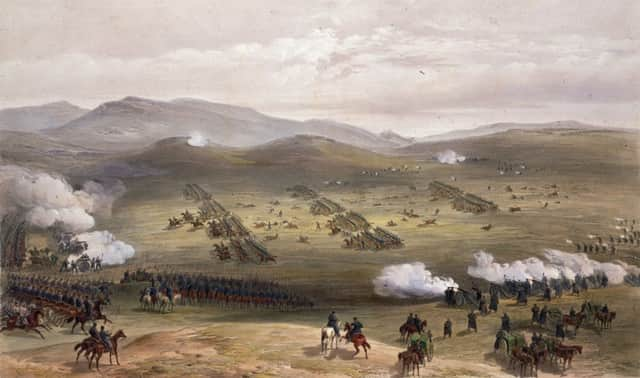Book review: Heroic Failure And The British by Stephanie Barczewski


Heroic Failure And The British by Stephanie Barczewski | Yale University Press, £20
Many years ago, for reasons that are now somewhat obscure to me, I looked into Higher Latin exams from the early part of the last century. In Latin Composition, the pupils were instructed to compose a speech, in the style of Cicero, which might have been delivered by General Gordon to his troops on the eve of the sacking of Khartoum.
Advertisement
Hide AdAdvertisement
Hide AdOne hundred years later it would be difficult to find a 16-year-old who knew who Gordon of Khartoum was, let alone one who could write a stirring speech in elegant Latin. Yet, as Stephanie Barczewski shows in this clever book, figures such as Gordon were once central to how the British saw themselves. Why, she asks, did the British for such a long time valorise the heroic failure? A host of examples make the case that this is a valid field of enquiry: Sir John Franklin’s doomed attempt to find the Northwest Passage in the Arctic; the charge of the Light Brigade at the Battle of Balaclava; David Livingstone (who as a missionary converted only a single person, who reverted to his traditional beliefs after six months, and an explorer who famously didn’t actually find anything); a study of the “Last Stands”, particularly in the Boer and Afghan Wars; the aforementioned Gordon of Khartoum and the Antarctic explorer Captain Scott.
A prelude looks at heroic failures from before the heyday of empire, including Mungo Park, the Battle of New Orleans in 1812 (which happened a fortnight after the Treaty of Ghent had been signed), the death of Sir John Moore in the Peninsular War and the first attempts at the Northwest Passage.
Barczewski’s thesis is that the British invested so much in the idea of heroic failure as a kind of collective psychological prophylactic against the horrors of what being an imperial power actually entailed. Far better to concentrate on the gallantry of the 922 “martyrs” of the Battle of Isandlwana than the wholesale slaughter of the Zulus at Rorke’s Drift. When Tennyson wrote in his poem on the 13th Light Dragoons that “someone had blunder’d”, it was easier to read than an analysis of strategic failings and interpersonal animosity. David Livingstone can be the subject of hagiographic adulation as long as we forget he killed at least eight Africans.
Barczewski’s contention is compelling. By promoting an idea of empire as fundamentally about enlightening the natives and promoting trade – unlike the rapacity of Spain’s empire or the egomania of Napoleon – Britons were able to turn a blind eye to the fact that their empire too was built on subjugation and skeletons. The British Empire was a matter of conduct, not conquest; and the stiff-upper-lip in the face of adversity, the plucky underdog, the doing the right thing not the successful thing, were handy myths to be deployed. It also helped to have adversaries. Livingstone’s star shines brighter when compared with Stanley’s honesty about force, power and money. Scott is an especially tragic hero when set against that rotter Amundsen, who cheated his way to the Pole and was cruel to dogs to boot.
There’s even a kind of British insouciance that only serves to make the failures glorious. Richard Airey, second-in-command to Lord Raglan, dismissed the charge of the Light Brigade saying “these sort of things will happen in war. It is nothing compared to Chillianwallah”. There was a degree of tutting and tsking when Kitchener took revenge on the Mahdist forces who had overwhelmed Gordon: at Omdurman, 11,000 Mahdists were killed and 16,000 wounded against 47 British dead and 382 wounded. The Maxim machine-guns and Lee-Enfield rifles no doubt helped. But Kitchener’s description of the engagement – “a thorough dusting” – seemed like poor sportsmanship.
My only misgiving is that the Britishness of the story tends to become Englishness very rapidly, and the concentration on the middle of the 19th century means that Barczewski doesn’t really analyse where the “heroic failure” trope originates. One could argue that it goes back to the medieval La Chanson de Roland, but there is a more influential vision of “heroic failure” on England’s doorstep. Sir Walter Scott’s Waverley is the clearest version of the trope. When Waverley himself speaks with Flora McIvor, whose brother has been executed for his role in the 1745 Jacobite Rebellion, she retorts: “Do not think I have forgotten them… I do not regret his attempt because it was wrong! – O no! on that point I am armed – but because it was impossible it could end otherwise than thus.”
England may have outgrown the “heroic failure” – nobody laments Eddie the Eagle Edwards these days – but from Waverley to the Archie Gemmill goal to a certain rugby match against Australia, we are connoisseurs of the form.